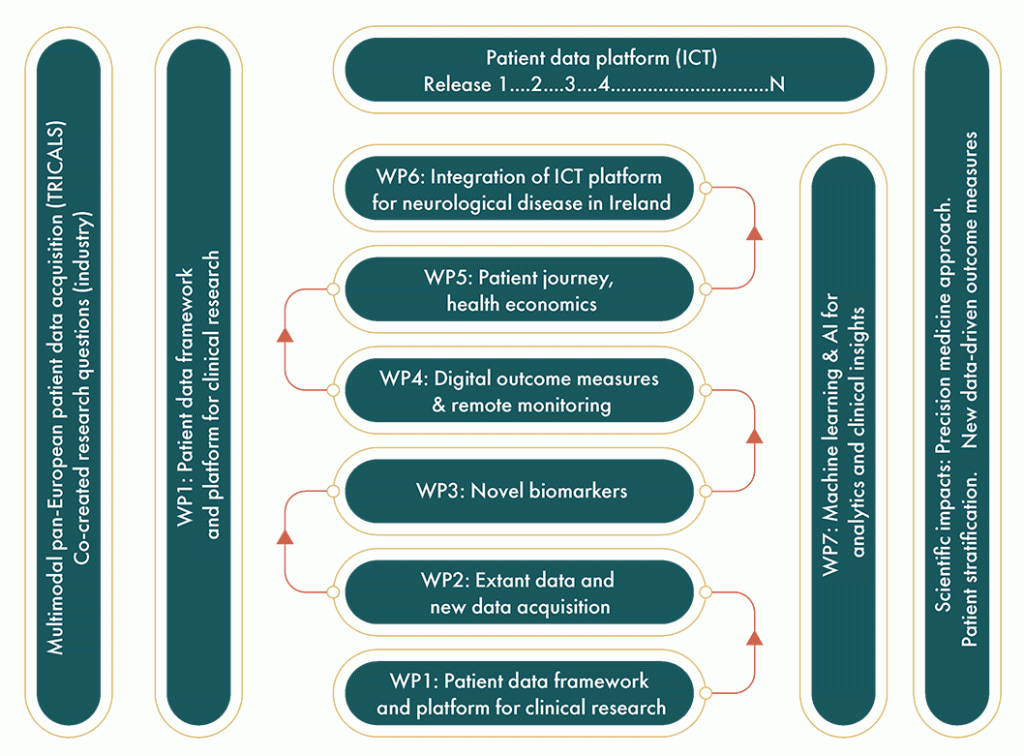Programme Structure
Precision ALS is divided into seven work packages, each led by a leading researcher in their respective field. Altogether, the work packages combine to make up the structure and to carry out the objectives of the overall programme. Each work package is described in more detail below.

Work Packages
-
1) Platform DevelopmentDevelopment of a Patient Data Platform for Clinical Research
The objective of Work Package 1 is to provide a customised Patient Data Platform for Clinical Research suited to the needs of the international rare diseases community, using ALS as an exemplary disease.
-
2) Data Collection and CollationInterrogation & Integration of Extant Data & New Data Acquisition
The objective of Work Package 2 is to collate a pan-European, population-based dataset of ALS and generate an early prototype ICT Platform.
-
3) BiomarkersNovel Biomarkers: Serum, Plasma, Imaging & Signal Analysis
The objective of Work Package 3 is to identify biomarkers that could provide insight into ALS.
-
4) Outcome MeasuresDigital Outcome Measures & Remote Monitoring
The objective of Work Package 4 is to develop remote monitoring technologies that ALS patients and their caregivers can use to facilitate clinical assessments in their home setting.
-
5) Patient JourneyPatient Journey & Health Economics
The objectives of Work Package 5 are to analyse the patient and caregiver journey, define key events from the patient and caregiver perspective, and provide a digital pathway for future analyses.
-
6) Transferability to Other DiseasesIntegration of ICT Platform for Neurological Disease in Ireland
The goal of Work Package 6 is to transfer the research model of Precision ALS to the research of other neurological diseases in Ireland.
-
7) Data Analytics and Machine LearningMachine Learning for Subject & Cohort Analysis
The objectives of Work Package 7 are to develop segmentation models to identify cohorts of patients suitable for clinical trials, data-driven prediction models of ALS progression, and data exploration and analysis methods to generate clinical insight into ALS.

